Blog
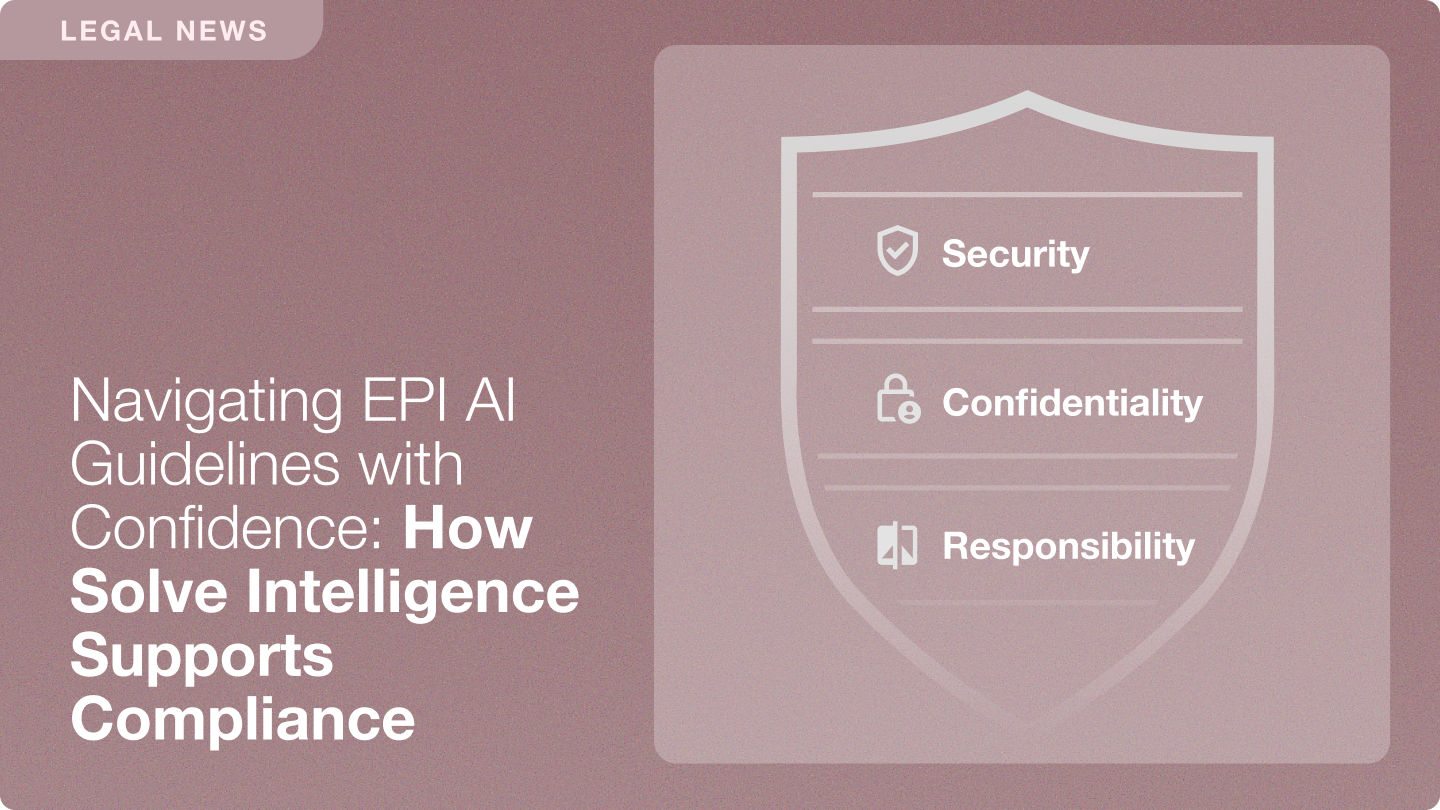
Navigating epi AI Guidelines with Confidence: How Solve Intelligence Supports Compliance
In 2024, the Institute of Professional Representatives before the European Patent Office (epi) published its Guidelines on the Use of Generative AI in the Work of Patent Attorneys. These Guidelines provide practical guardrails for the responsible use of generative AI in patent practice, reaffirming that professional responsibility, confidentiality, and transparency remain central when AI tools are used.
In our earlier blog post, we outlined the key principles set out in the epi Guidelines. Since then, the Guidelines themselves have not changed. However, the use of AI in patent workflows has continued to mature, and so has Solve Intelligence.
This update highlights how Solve Intelligence supports compliance with the epi Guidelines in day-to-day practice, focusing on concrete product capabilities and supporting processes.
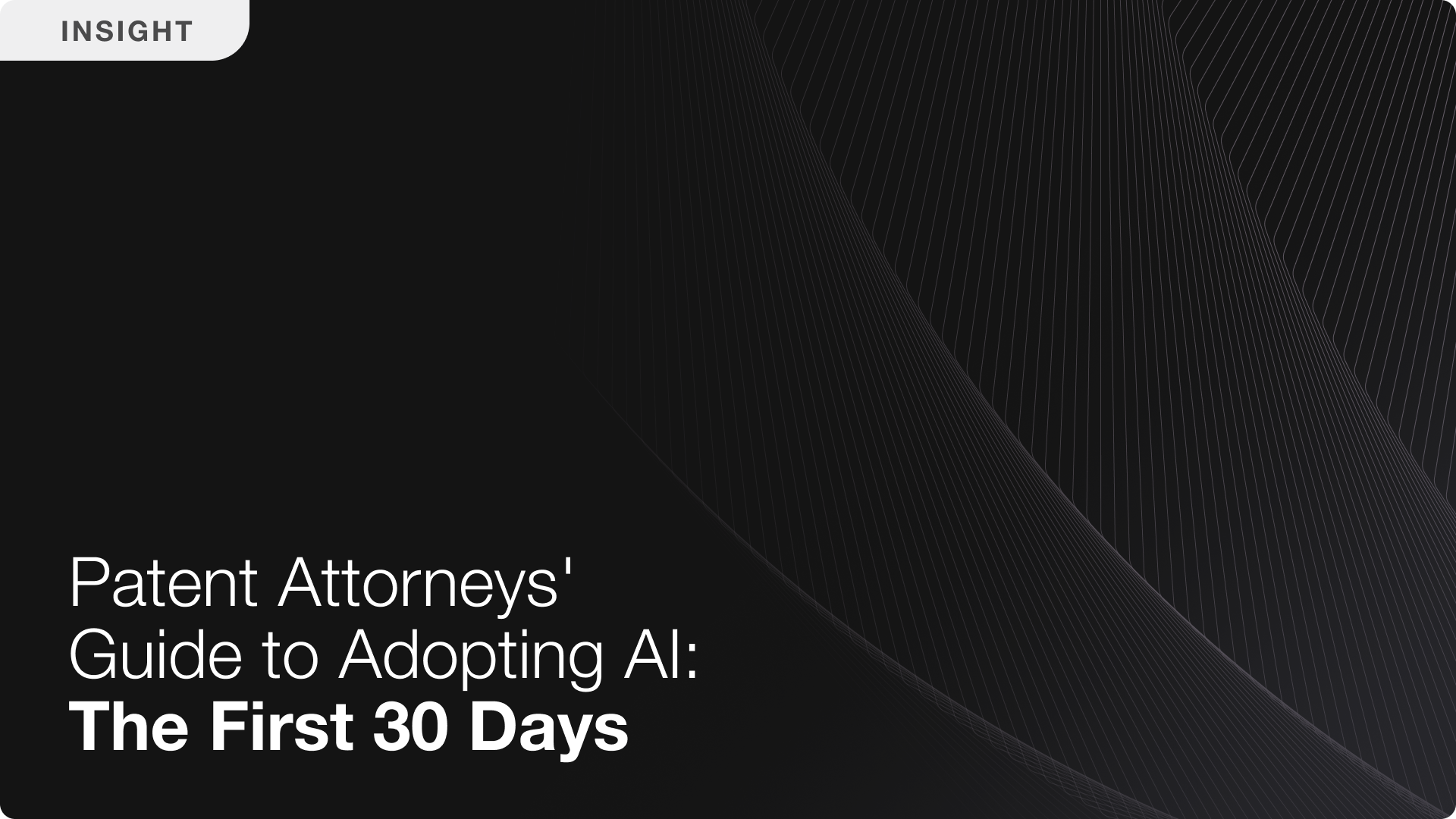
Patent Attorneys' Guide to Adopting AI: The First 30 Days
Artificial intelligence is already reshaping patent practice, but adopting it swiftly, efficiently and securely is where most firms get stuck. Patent professionals know the productivity upside to using gen AI tools, yet often get derailed when informal experiments run into real-world problems: client confidentiality concerns, inferior work-product quality, delayed internal approvals, and decision-fatigue.
This guide lays out a practical, 30-day plan for adopting AI in patent work, moving from ad hoc trials to a controlled, firm-ready strategy. It shows how you can run a focused pilot, set clear guardrails, train attorneys, and document decisions in a way that satisfies partners, clients, and internal stakeholders.
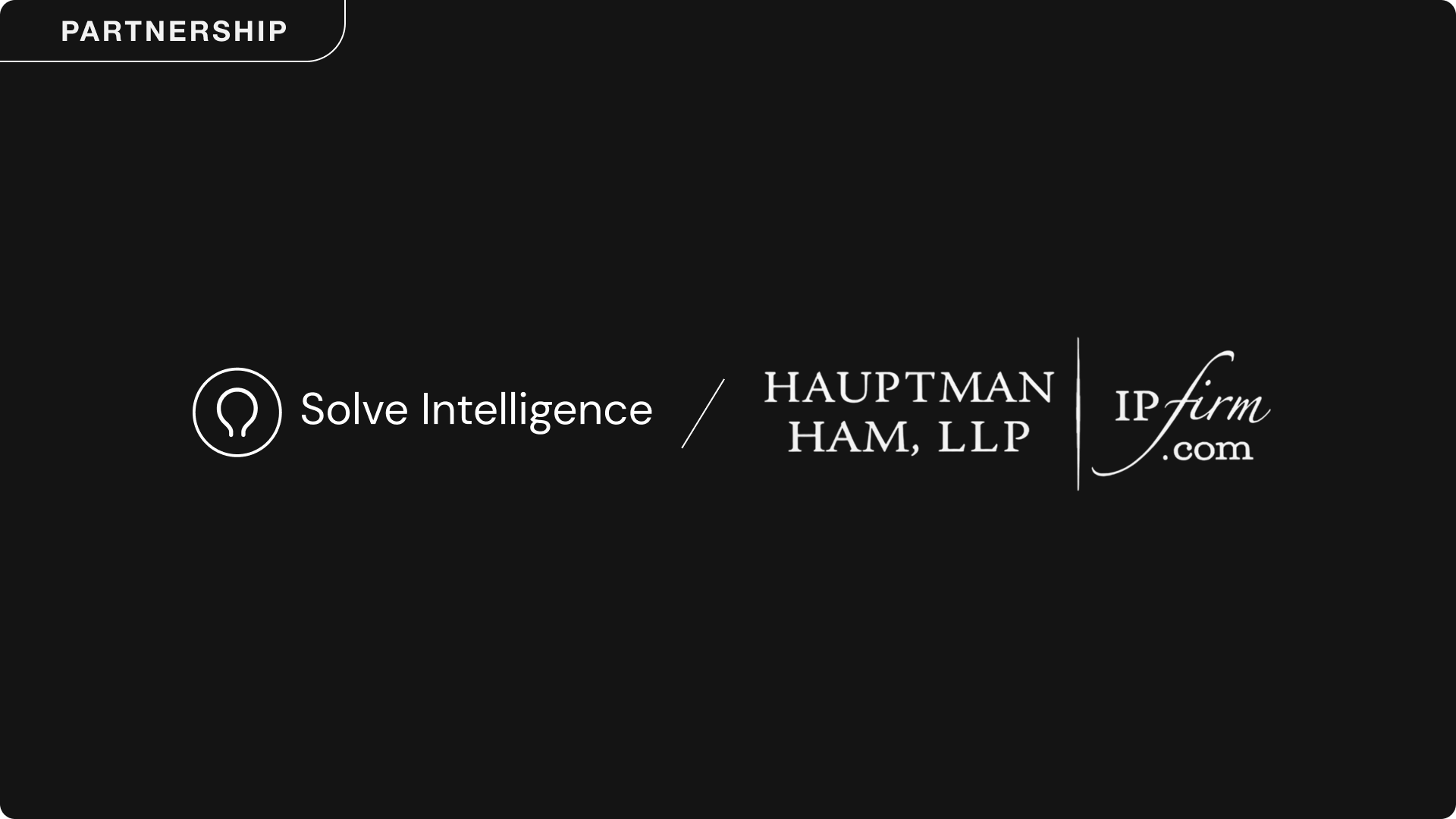
Hauptman Ham Integrates Solve Intelligence into Patent Practice
Hauptman Ham is redefining patent prosecution with Solve Intelligence. By integrating AI-driven workflows into their patent practice, Hauptman Ham attorneys and agents are delivering office action responses that set a new standard—precise, insightful, and creatively crafted. Their clients are gaining a strategic edge with more innovative outcomes that stand out in a competitive landscape.
Firm leader Ron Embry describes the value of Solve Intelligence in Hauptman Ham’s patent practice.
“The Patent Copilot system allows practitioners at Hauptman Ham to use more creative strategies in pursuit of broad, defensible patent claims for our clients. We use the advanced functionality of the Solve Intelligence system to explore multiple potential avenues in responding to rejections and prosecuting families of patent applications. We find the tool to be quite useful in integrating different legal strategies into one unified, comprehensive, and nuanced approach to obtaining patent protection for our clients.”
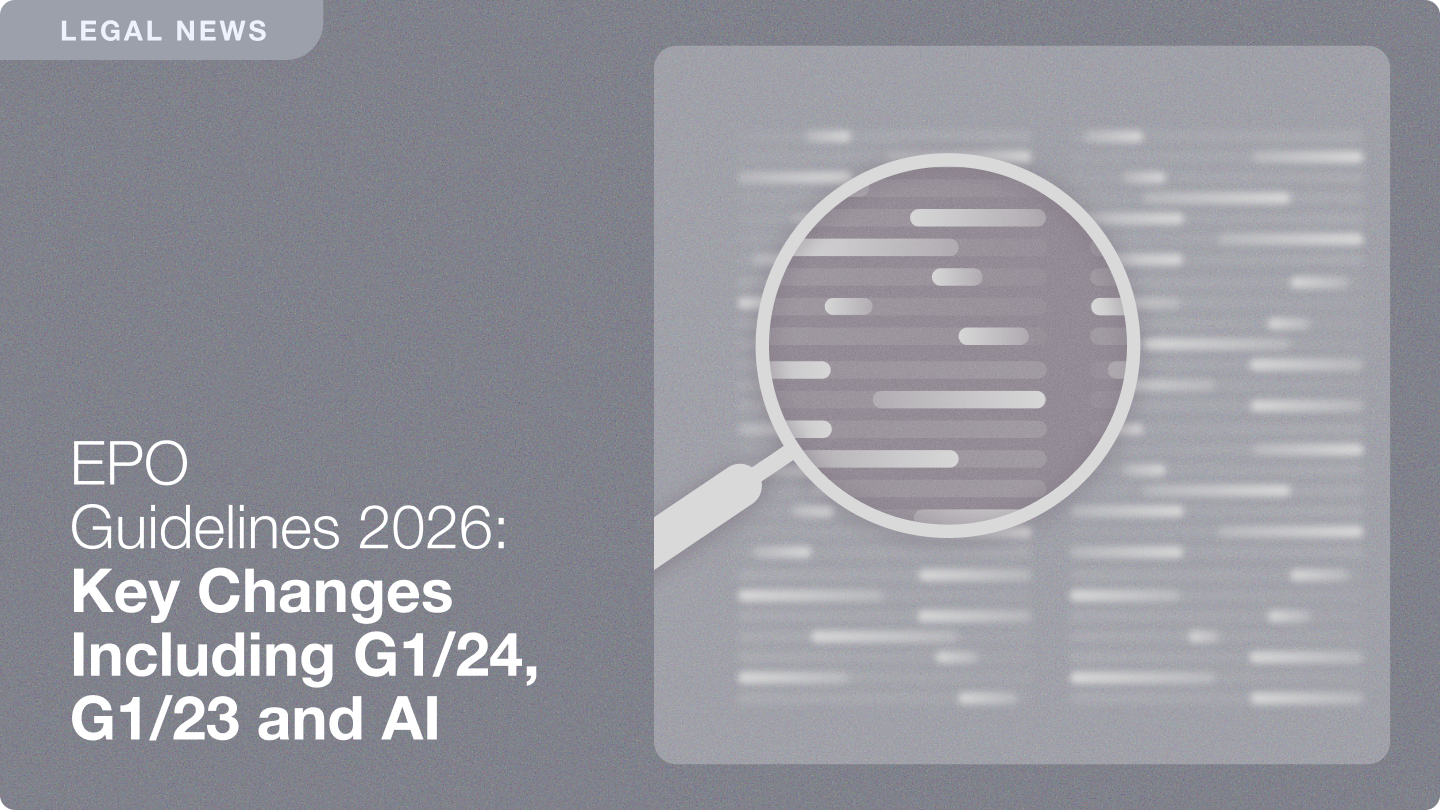
EPO Guidelines 2026: Key Changes Including G 1/24, G 1/23, and AI
The European Patent Office has published a preview of its Guidelines for Examination, effective April 2026. This update incorporates the landmark Enlarged Board decisions G 1/24 (claim interpretation) and G 1/23 (products on the market), alongside a significant change of practice for selection inventions, new rules on colour drawings, and the EPO's first formal guidance on artificial intelligence.
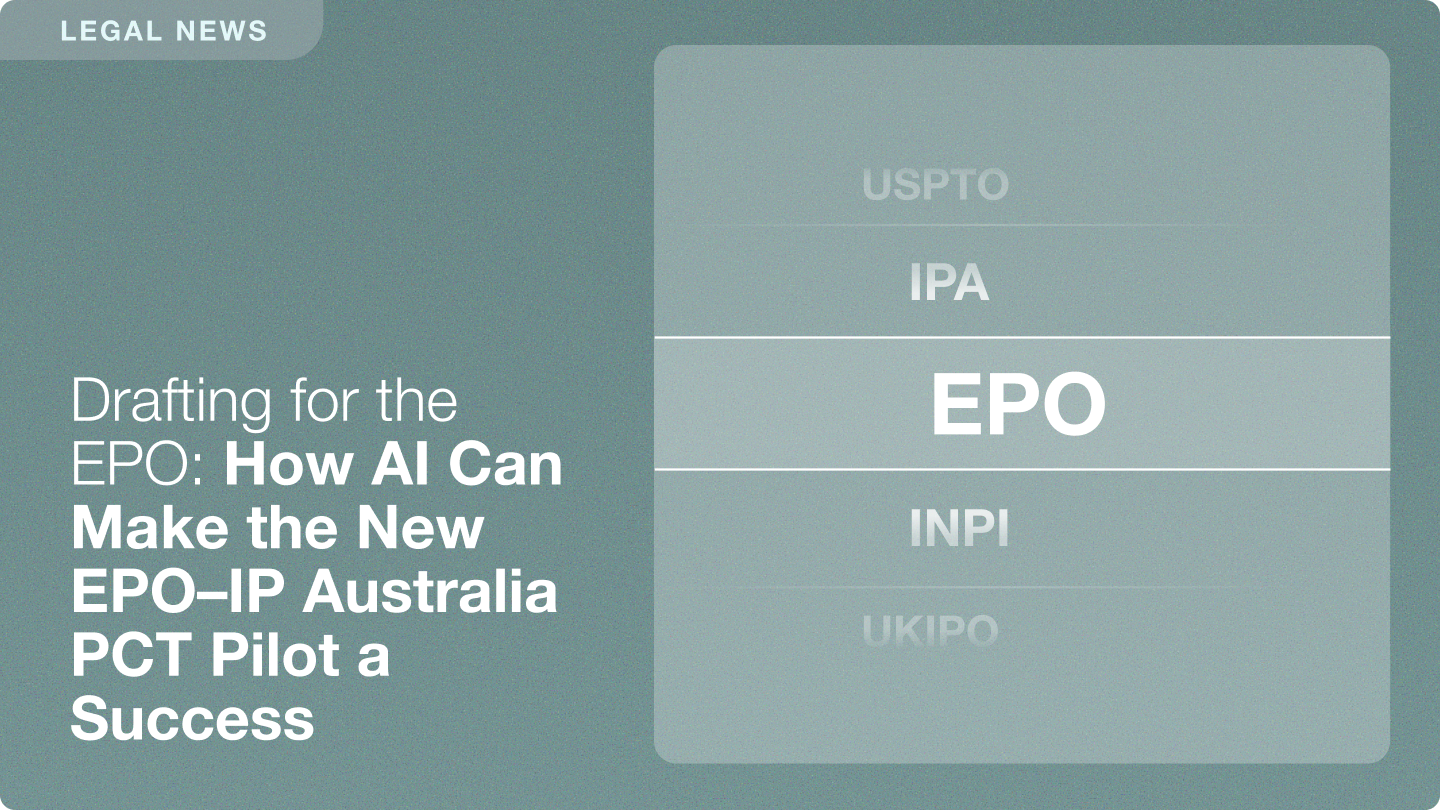
Drafting for the EPO: How AI Can Make the New EPO–IP Australia PCT Pilot a Success
The EPO and IP Australia are launching a new PCT pilot programme on 1 March 2026 which will allow Australian applicants to designate the EPO as their International Searching and Preliminary Examining Authorities (ISA and IPEA).
Given the EPO’s rigorous approach to clarity and support requirements, for this pilot programme to succeed, Australian applicants and patent practitioners will have to adapt to draft international applications with EPO-specific requirements in mind.
The launch of this pilot programme will add a new layer of complexity — (and opportunity) for patent practitioners. In a landscape where jurisdictional nuance can shape international search and examination outcomes, AI‑augmented tools such as Solve Intelligence's Patent CopilotTM are becoming increasingly valuable.
.png)
Joshua Davenport to join Solve’s Customer Advisory Board
We are excited to welcome Joshua Davenport, Shareholder at Banner Witcoff, to Solve Intelligence’s Customer Advisory Board.
.png)
Webinar: Masterclass – AI Prompt Engineering for Patent Workflows
As AI adoption in patent practice continues to accelerate, a critically important question emerges—How do you get AI to deliver the work product you need and the quality you want?
Please join Solve Intelligence and IPWatchdog on Thursday, February 5, at 12 PM ET for a detailed examination of the practical application of AI prompting for patent practice. This webinar is designed for patent attorneys and in-house counsel who want to move beyond experimentation and understand how prompt engineering can be used as a repeatable skill, enabling more efficient, higher-quality patent work across AI-enabled workflows.
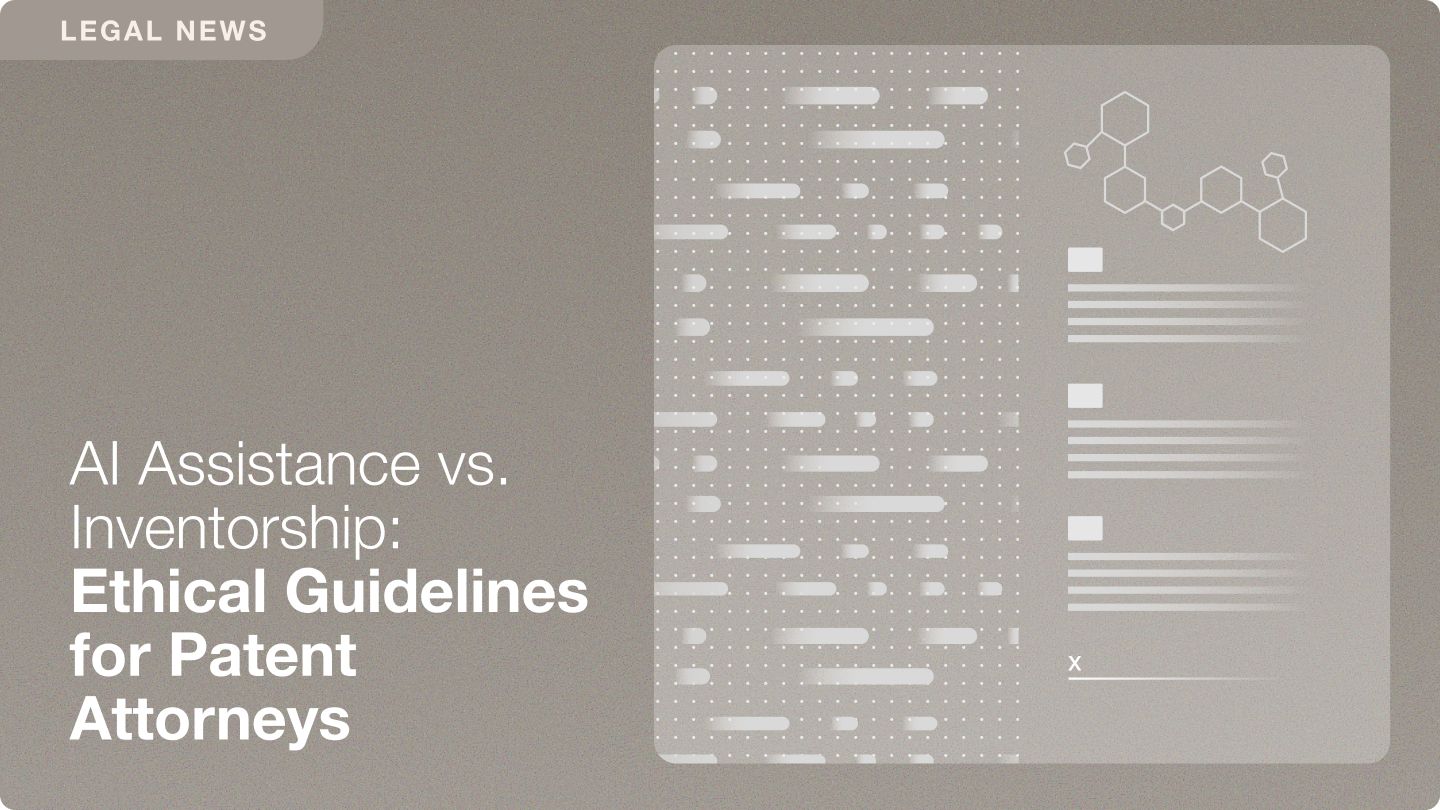
AI Assistance vs. Inventorship: Ethical Guidelines for Patent Attorneys
AI is now a daily tool for many patent attorneys; from drafting assistance to prior art searches. But questions about inventorship and ethics persist. Courts and patent offices worldwide continue to grapple with whether AI can be considered an inventor, and the recent November 2025 USPTO guidance has brought fresh clarity to this evolving area.
This article explores where the line is drawn between AI as a tool and AI as an inventor, and how attorneys can use AI responsibly while meeting their professional obligations.